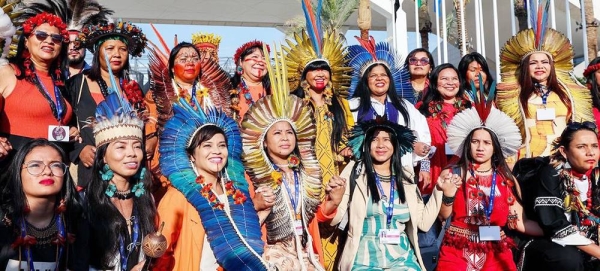
The UN has called carbon emission commitments alarmingly low. It is surprising that it took them five years to realize that the world was set on the path to climate catastrophe.
The mathematics is not complex, but that is how long it took the experts at the UN Framework Convention on Climate Change, which has been leading global negotiations on climate change actions, to figure out that the commitments to cut carbon emissions made since the Paris Agreement of 2015 are barely 2 percent of the cuts needed for the world to limit the rise in temperatures by 1.5°C since industrialization began.
The UNFCCC says commitments by the 75 countries that account for about 30 percent of global greenhouse gas emissions would reduce their emissions in 2030 by less than 1 percent from their 2010 level, when what is needed is a reduction of at least 45 percent. It calls for urgent action if the catastrophic scenario of temperatures rising by over 4°C is to be avoided.
Stern as it may be, the UNFCCC’s warning is too little, too late. Irrespective of all the commitments and feel-good statements from various global meetings on emissions controls, the world is firmly on the road to a climate catastrophe.
One of the principal reasons for this failure is ingrained in the Paris Agreement that was signed in a moment of desperation in December 2015, after a fortnight of negotiations showed little progress and deep divisions split the developed and developing world over who bore the responsibility for the climate crisis and what needed to be done to save the planet.
In 2015, even after years of discussions and negotiations, the global community had been unable to reach even a rough framework or outline of an agreement. This is normally a basic requirement; bureaucrats come up with a draft agreement that the heads of state can then tweak and sign.
It is not too late to fix the flaws of Paris. But it needs an honest and open appraisal of exactly how far behind we stand in terms of actions to be taken, and for the rich nations to pay the developing countries on the simple principle of “polluter pays.”
Ranvir S. Nayar
But going into the meeting in Paris, there was not even a rough draft and ultimately it fell on the shoulders of nearly 100 heads of state to try to come to agreement. Finally, they came to a fudge. They said the global community would do its best to keep the temperature rise to 1.5°C, but certainly below 2°C.
That sounded good on paper and it was duly announced amid great cheer and celebrations by the negotiators. However, the devil was in the details. There was little in the Paris Agreement about how the temperature rise could be curbed, as most countries had not indicated the cuts in carbon emissions that they had to implement. The leaders said each country would submit its own Nationally Determined Contributions (NDC) in terms of emissions cuts, and that a review in subsequent meetings of the Conference of Parties would ensure that the NDCs added up to the levels needed to save the planet.
Another big issue, which is not yet being addressed, relates to the legal obligation of countries to respect their commitments. Unlike other treaties, notably the Montreal Protocol on Ozone Layer, there is no policing of the NDCs or any penalty of any kind on countries that miss their targets. This is a major problem that could turn into a fatal flaw in the agreement as there is little pressure on countries to do what they said they would do. Already, the world’s track record in cutting carbon emissions has been pathetic, with even the most progressive regions, such as the EU, missing some of their Paris commitments.
Another weakness is the lack of finance for developing countries to undertake steps to meet their own targets,as well as for mitigation to help countries and people deal with the impact of climate change. Even though the developed world committed to $100 billion a year to help the developing world, this commitment has stayed on paper.
It is not too late to fix the flaws of Paris. But it needs an honest and open appraisal of exactly how far behind we stand in terms of actions to be taken, and for the rich nations to pay the developing countries on the simple principle of “polluter pays.” It will take a lot of political will at the UN for us to get there, but the rising power of Green parties in different parts of the world are indicators that humanity may finally be ready to make the sacrifices needed to save the planet and itself.
• Ranvir S. Nayar is managing editor of Media India Group.
Disclaimer: Views expressed by writers in this section are their own and do not necessarily reflect Arab News" point-of-view












